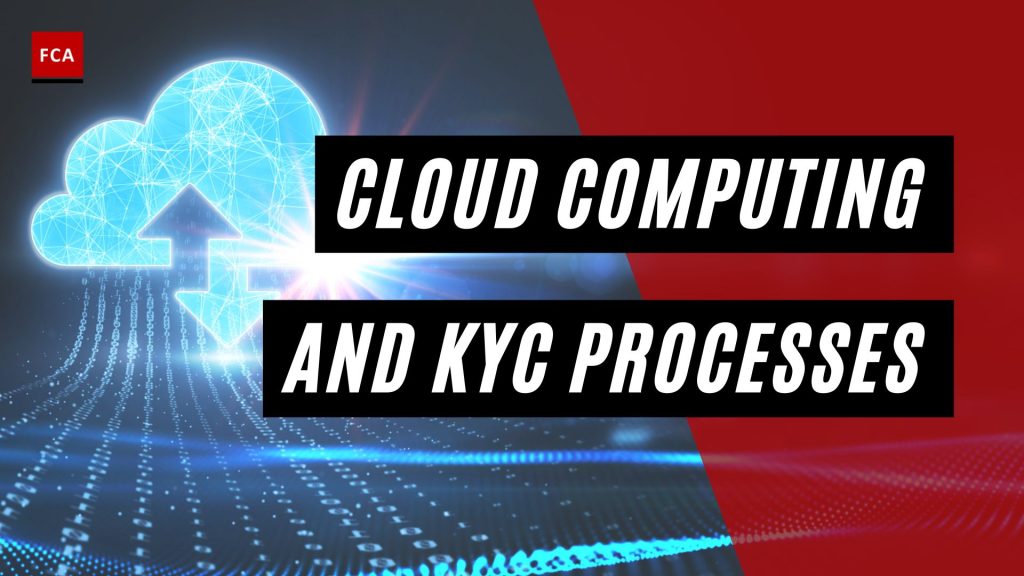Cloud computing and KYC processes have revolutionized the financial sector by offering scalable, real-time verification solutions that enhance security and user convenience simultaneously.
Money laundering and terrorist financing are significant global issues that poses a threat to the integrity of world financial system and countries level AML/KYC controls. The traditional approaches to AML and KYC processes have been struggling to keep up with the rapid evolution of money laundering and terrorist financing techniques and the increasing volume of complex cross border financial transactions.
Cloud computing technology has emerged as a potential solution to address the financial crime challenges faced by institutions due to their traditional AML and CDD/KYC processes. By leveraging the power of cloud computing, financial institutions may further enhance their AML and CDD/KYC efforts through advanced data analytics and AI/ML algorithms while reducing compliance costs and improving KYC process efficiency.
Cloud computing allows users to access computing resources, such as servers, storage, and applications, over the internet. It involves the use of remote servers that are hosted on the internet to manage, store, and process data variables rather than relying on a local server or a computer application. Cloud computing provides on-demand access to technology or computing resources, enabling users to scale up or down and only pay for what users actually use.

Cloud Computing and KYC Processes
Cloud computing can be categorized into three types of services:
- Infrastructure as a Service (IaaS),
- Platform as a Service (PaaS), and
- Software as a Service (SaaS).
IaaS provides users with the necessary infrastructure, such as virtual machines, storage, and networking, to build and run their applications.
PaaS provides a platform for users to develop, deploy, and manage their applications without the need to manage the underlying infrastructure.
SaaS provides users with access to a software application hosted on the cloud, eliminating the need to install and manage the software locally.
Cloud computing offers several benefits, including scalability, flexibility, cost-efficiency, and reliability. These benefits make cloud computing an ideal solution for organizations and institutions that are looking to improve their AML and KYC processes by leveraging advanced data analytics and machine learning techniques.
Cloud computing technology offers several potential benefits for AML and KYC processes. By leveraging the power of cloud computing, financial institutions can process and analyze vast amounts of complex customer data in real-time, which reduce the customer identification and verification efforts, and time required to identify money laundering and terrorist financing risks.
One of the ways that financial institutions can apply cloud computing technology to AML and KYC is through the use of data analytics and ML techniques. With access to large amounts of customer related data points, cloud-based AML and KYC systems may analyze customer and their transactional patterns to identify possible data anomalies that may indicate potential money laundering or terrorist financing risks or activities.
Machine learning (ML) algorithms can be trained to identify new customer data patterns or transaction scenarios and adapt to evolving money laundering and terrorist financing techniques. Use of cloud-based AML and KYC systems may also help financial institutions to comply with regulatory requirements because the cloud application service providers may offer compliance solutions based on institutions need, which may help financial institutions meet their CDD/KYC and overall AML compliance obligations.
For this, the management or chief-compliance officers (CCOs) of the institution must coordinate and collaborate with cloud service providers to facilitate them in the development and inclusion of regulatory compliance controls in desired cloud-based application.

Final Thoughts
Money laundering and terrorist financing continue to threaten the stability of global financial systems. While traditional AML and KYC methods lag behind the rapidly advancing techniques of illicit actors, cloud computing emerges as a beacon of hope. Harnessing the cloud’s scalability, flexibility, cost-efficiency, and reliability, financial institutions can access powerful data analytics and ML tools. These cloud-based systems can swiftly process vast data sets, highlighting unusual patterns that might indicate criminal activity.
Additionally, the integration of machine learning empowers these systems to continuously learn from new data, ensuring they remain a step ahead of evolving threats. Crucially, collaboration between financial institution leadership and cloud providers is paramount, ensuring these platforms not only meet but exceed regulatory requirements. This synergy, fostered by the cloud, paves the way for a safer, more efficient financial landscape.








